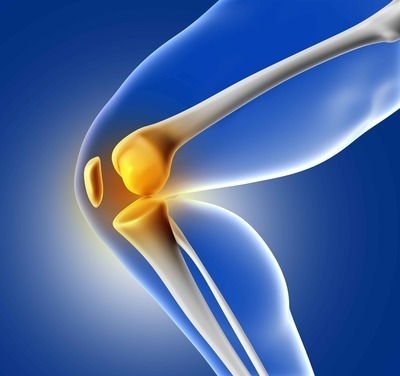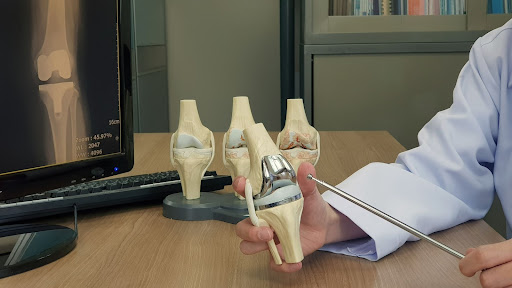Anal Fissures
Fissure Surgery Side-Effects – Need to Know Before Going for Surgery

by admin
29th August 2023
7 minutes read
As the modern world progresses, medical science has brought several advancements to the treatment of various ailments. Fissure treatment, which once required traditional surgical intervention, is now often addressed with laser technology, offering a minimally invasive approach. Yet, like all medical procedures, anal fissure surgery comes with its own set of potential side effects that anyone considering this treatment should be aware of.
Understanding Fissure and Its Treatment
Anal fissures are small tears or cuts in the thin, moist tissue (mucosa) that lines the anus. They can cause severe discomfort and pain during bowel movements. The treatment for an anal fissure varies depending upon the severity and chronicity of the condition. While the initial stage typically includes the use of fissure medicine such as topical ointments, creams, and certain lifestyle changes, for more severe or chronic cases, a doctor may recommend fissure treatment surgery.
There are two primary surgical methods for treating a fissure: traditional surgery and laser surgery for fissure. Traditional surgery, often referred to as a lateral internal sphincterotomy, involves making a small incision in the anal sphincter muscle to reduce spasm and pain, promoting healing of the fissure. On the other hand, laser treatment for fissure, or laser surgery for anal fissure, uses focused light to create precise incisions and promote tissue healing. Both techniques aim to alleviate the patient’s symptoms and enhance their quality of life.
The Side Effects of Fissure Surgery
Fissure surgery, whether traditional or laser-based, is typically a last resort treatment recommended by healthcare providers when other treatments for anal fissures haven’t been successful. While effective, these procedures carry potential risks and side effects, just like any other surgical intervention. Understanding these side effects is essential before making a decision. Here are some of the common side effects associated with fissure surgery:
- Pain: Postoperative pain is common after any surgical procedure, including fissure surgery. The degree of discomfort varies among individuals but is usually manageable with analgesics.
- Bleeding: Mild bleeding can occur for a few days following the surgery. However, heavy or persistent bleeding should be reported to a healthcare provider immediately, as it may indicate complications.
- Infection: Any surgical procedure carries a risk of infection, although preventative measures like antibiotics are typically used to minimise this risk.
- Changes in Bowel Movements: Fissure surgery can occasionally lead to changes in bowel habits. This can range from mild constipation to, more rarely, incontinence – the inability to control bowel movements.
- Recurrence: There’s a chance that the anal fissure can return, even after surgical intervention.
- Anal Stenosis: Although very rare, some patients may experience narrowing of the anal canal after surgery, leading to constipation and straining during bowel movements.
- Reaction to Anesthesia: As with any surgery involving anaesthesia, there’s a small risk of adverse reactions to the anaesthesia used during the procedure.
When it comes to laser surgery for fissure treatment, the side effects are generally similar. However, laser surgery is often favored due to its minimally invasive nature, which usually leads to less postoperative pain, less bleeding, a lower risk of infection, and faster recovery times. Despite these benefits, it’s important to note that laser surgery may come with its own unique risks, such as potential tissue damage from the laser itself.
It’s crucial to discuss all possible side effects and complications with your healthcare provider before undergoing any surgical procedure, including fissure surgery. This will ensure you’re making an informed decision about your treatment and are adequately prepared for the postoperative period.
Laser Fissure Surgery Side Effects
While laser treatment for fissures represents a significant stride forward in medical technology, offering patients a minimally invasive option with faster recovery times, it is still important to understand that this procedure does carry potential side effects and risks. The following provides an in-depth look into the potential side effects of laser surgery for fissure treatment:
- Pain: As with any surgical procedure, there may be a level of discomfort and pain after laser fissure surgery. However, the pain associated with this procedure is generally lesser than traditional surgery. Postoperative pain can typically be managed effectively with prescribed pain medication.
- Bleeding: Some bleeding after the procedure is expected, but this should be minimal and will usually stop within a few days. Excessive or persistent bleeding can signal a complication and should be reported to your healthcare provider immediately.
- Infection: There is always a risk of infection when it comes to any surgical procedure, though this risk is typically lower with laser surgery due to the minimally invasive nature of the procedure. Antibiotics are usually provided to minimize this risk.
- Tissue Damage: Lasers work by generating intense heat, and if not properly controlled, they can cause burns or damage to surrounding tissues. However, this risk is very low when the procedure is performed by a skilled and experienced surgeon.
- Recurrence of Fissures: While laser surgery for anal fissure significantly reduces the chance of recurrence when compared to traditional surgical methods, there is still a chance that fissures can reappear. Recurrence rates can be mitigated by following postoperative care instructions and making lifestyle changes, such as a high-fibre diet and regular exercise.
- Incontinence: Though quite rare, some patients may experience temporary incontinence after surgery. This can range from the inability to control gas to more severe instances where control over bowel movements is compromised. This risk is lesser in laser surgery compared to traditional surgery.
- Cost: Laser treatment for fissures can be expensive. This is due to the cost of the laser equipment and the specialised training required for surgeons to perform this procedure. The cost can vary depending on your geographic location and the specific healthcare provider.
- Anaesthetic Reactions: In rare cases, there may be adverse reactions to the local or general anaesthesia used during the procedure.
Before opting for laser treatment of fissure, it’s essential to have an open discussion with your healthcare provider about these potential risks and side effects. By being well-informed, you can make the best decision for your health and recovery. It’s also important to note that while these side effects may seem daunting, they are rare, and the majority of patients who undergo laser surgery for anal fissure experience a significant improvement in their symptoms and quality of life.
How can Medfin help?
Medfin is a daycare surgery expert providing access to the latest surgical procedures and top doctors in your city at affordable prices. Medfin provides you access to top doctors and surgeons with 10+ years of experience. With Medfin, you can leave your hassles behind and focus on your health. From instant consultations to paperwork assistance, we have got you covered with everything. So why wait? Call us today!
Conclusion
Regardless of the type of surgery considered, it’s essential to discuss with your doctor about all the possible side effects before making a decision. The aim should always be to choose a treatment that offers the best chance for relief with the least amount of risk. Furthermore, patients must be fully informed of what to expect post-surgery, whether they’re undergoing traditional fissure surgery, laser treatment of fissure, or chronic anal fissure surgery. Understanding the possible outcomes and managing expectations will greatly enhance the recovery process and the overall quality of life post-treatment.
FAQs
Q. Is there a risk of infection after fissure surgery?
A. Yes, there is a slight risk of infection at the surgical site. However, surgeons take measures to minimize this risk, and post-operative care instructions are provided to help prevent infections.
Q. Are there any long-term complications of fissure surgery?
A. In some cases, patients may experience anal stenosis, a condition where the anus becomes narrower, leading to difficulty in passing stools. Regular dilation may be required to address this.
Q. Can fissure surgery affect sexual function?
A. Generally, fissure surgery doesn’t impact sexual function. However, if you have concerns, it’s essential to discuss them with your surgeon beforehand.
Q. How can I minimize the risk of side effects and complications after fissure surgery?
A. Following your surgeon’s post-operative instructions, maintaining good anal hygiene, eating a fiber-rich diet, staying hydrated, and avoiding straining during bowel movements can help reduce the risk of side effects and complications.
Q. Can fissure surgery cause incontinence?
A. While rare, there is a small possibility of temporary or permanent bowel incontinence following fissure surgery. The risk is higher in complex cases or when complications occur.
CATEGORIES
- ACL Reconstruction
- Anal Fissures
- Anal Fistula
- Appendicitis
- ASK A DOCTOR
- Benign Prostatic Hyperplasia
- Breast Lump Excision
- Cataract
- Circumcision
- Conditions & Diseases
- Cosmetology
- Covid-19
- Cure
- Endocrinology
- ENGLISH VIDEOS
- Eye Care
- Gallstones
- General Surgeries
- Government Schemes
- Gynaecology
- Gynecomastia
- Health
- Health Insurance
- Hernia
- Hindi
- Hip Arthoscopy
- Hip Replacement
- Hip Replacement Surgery
- Hydrocele
- Kannada
- Kidney Stones
- Knee Arthroscopic
- Laparoscopic
- LASER
- Latest Treatments
- Lifestyle
- Liposuction
- Medfin Stories
- Medicine
- Nephrology
- Ophthalmology
- Orthopaedic
- Paraphimosis
- Patient Testimonials
- PCL Reconstruction
- Phimosis
- Piles (Hemorrhoids)
- Pilonidal Sinus
- Proctology
- Prostate Artery Embolization
- Rhinoplasty
- Second Opinion
- Total Knee Replacement
- Urology
- Uterine Artery Embolization
- Uterine Fibroids
- Varicocele
- Varicose Veins
- Vascular
- VIDEOS







